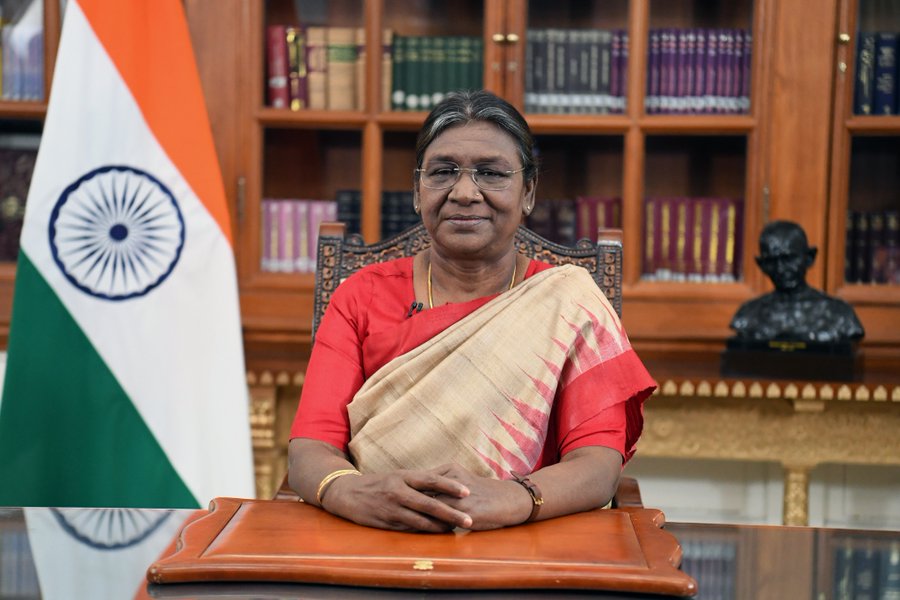
President Droupadi Murmu 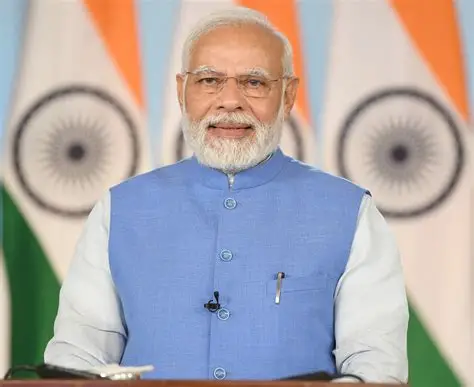
Prime Minister Narendra Modi 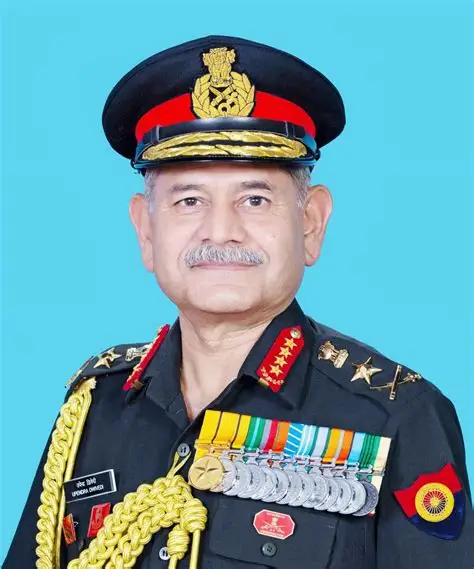
General Upendra Dwivedi, COAS, PVSM, AVSM 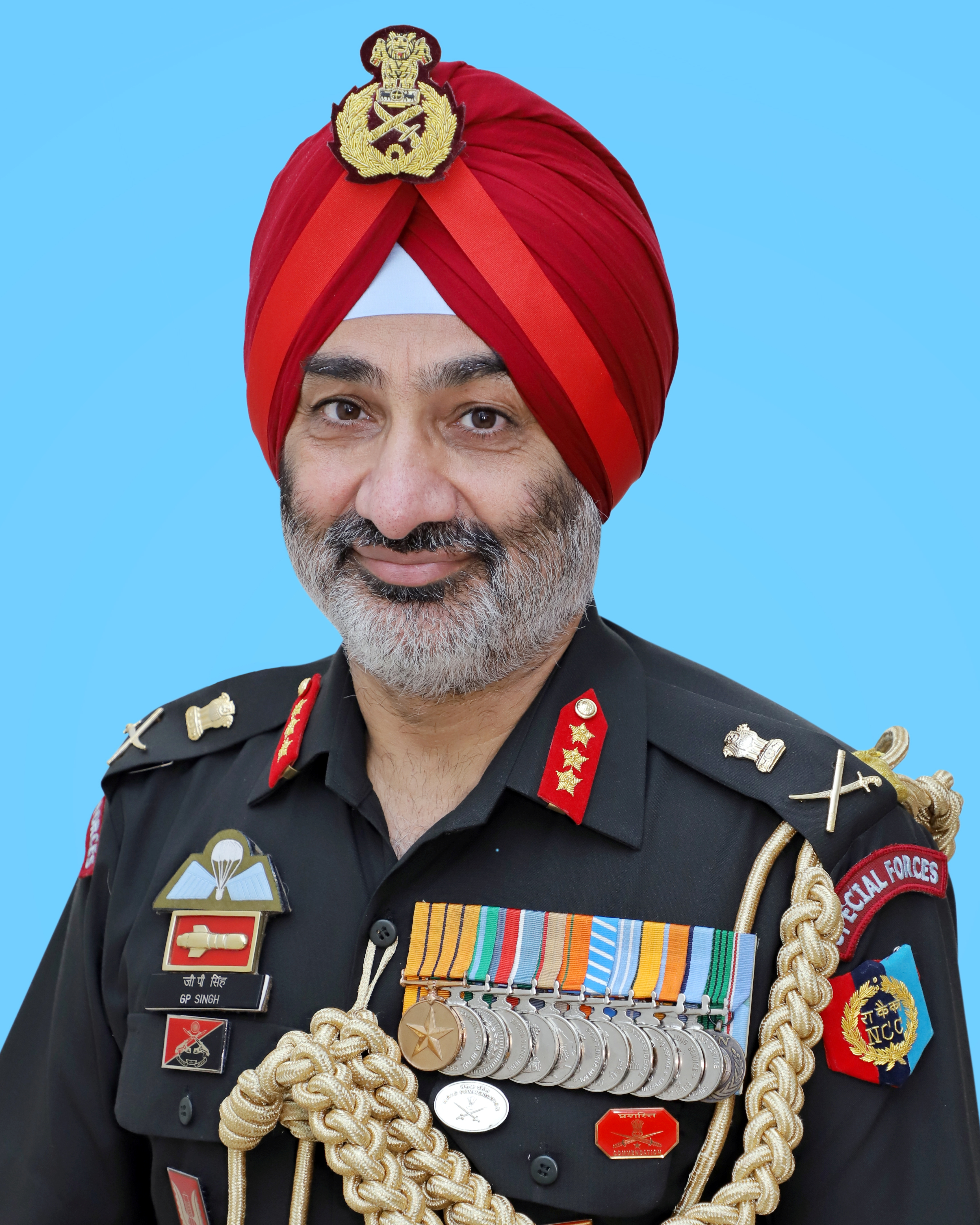
Lieutenant General Gurbirpal Singh, AVSM, VSM, DG NCC, DELHI |
NATIONAL CADET CORPS (NCC): FOSTERING LEADERSHIP AND DISCIPLINEThe National Cadet Corps (NCC) is one of India's premier youth organizations, dedicated to nurturing discipline, leadership, and patriotism among young individuals. As a dynamic and progressive entity, the NCC continually adapts to the changing needs of society. It serves as a vibrant melting pot where cadets from diverse backgrounds come together, learning to appreciate India's rich tapestry of traditions while working shoulder-to-shoulder for common goals. Cadets are encouraged to embrace and respect the vast diversity of India's religions, languages, cultures, and lifestyles. Through various initiatives, the NCC fosters unity, social harmony, and active involvement in community welfare programs. At Jabalpur Engineering College, the NCC transcends being merely an extracurricular activity; it is a transformative platform that molds students into disciplined, responsible, and patriotic citizens. With a legacy rooted in service and leadership, the NCC instills values that go beyond the classroom, preparing cadets for both military and civilian life. More than just a youth program, the NCC becomes a way of life that continues to influence cadets long after they've hung up their uniforms. The Chief of the Army Staff (COAS), currently General Upendra Dwivedi, serves as the top-ranking officer in the Indian Army.Lieutenant General Gurbirpal Singh currently serves as the Director General of the National Cadet Corps (NCC), and is responsible for its functioning. As Field Marshal Sam Manekshaw famously said: “The NCC teaches you to live, to lead, and to serve — and that is what the country needs most." OUR COLLEGE NCC: KHAKHI AND COURAGEAt Jabalpur Engineering College, the NCC operates under the 4 MP CTR (Composite Technical Regiment), offering specialized training in technical and leadership skills. Our cadets embody NCC's core values: Commitment, Sincerity, and Discipline (CSD). The NCC provides a transformative experience, combining military discipline with personal growth. Whether through Republic Day camps, Thal Sena camps, adventure activities, or social service, cadets gain invaluable skills and lifelong memories. The experience teaches young minds that true patriotism means embracing our pluralistic heritage while actively contributing to nation-building through civic engagement and community service. Through its carefully designed programs, the NCC builds bridges between communities, turning differences into strengths and transforming individual cadets into agents of positive social change. "The NCC is not just about wearing a uniform, it’s about wearing values with pride." |
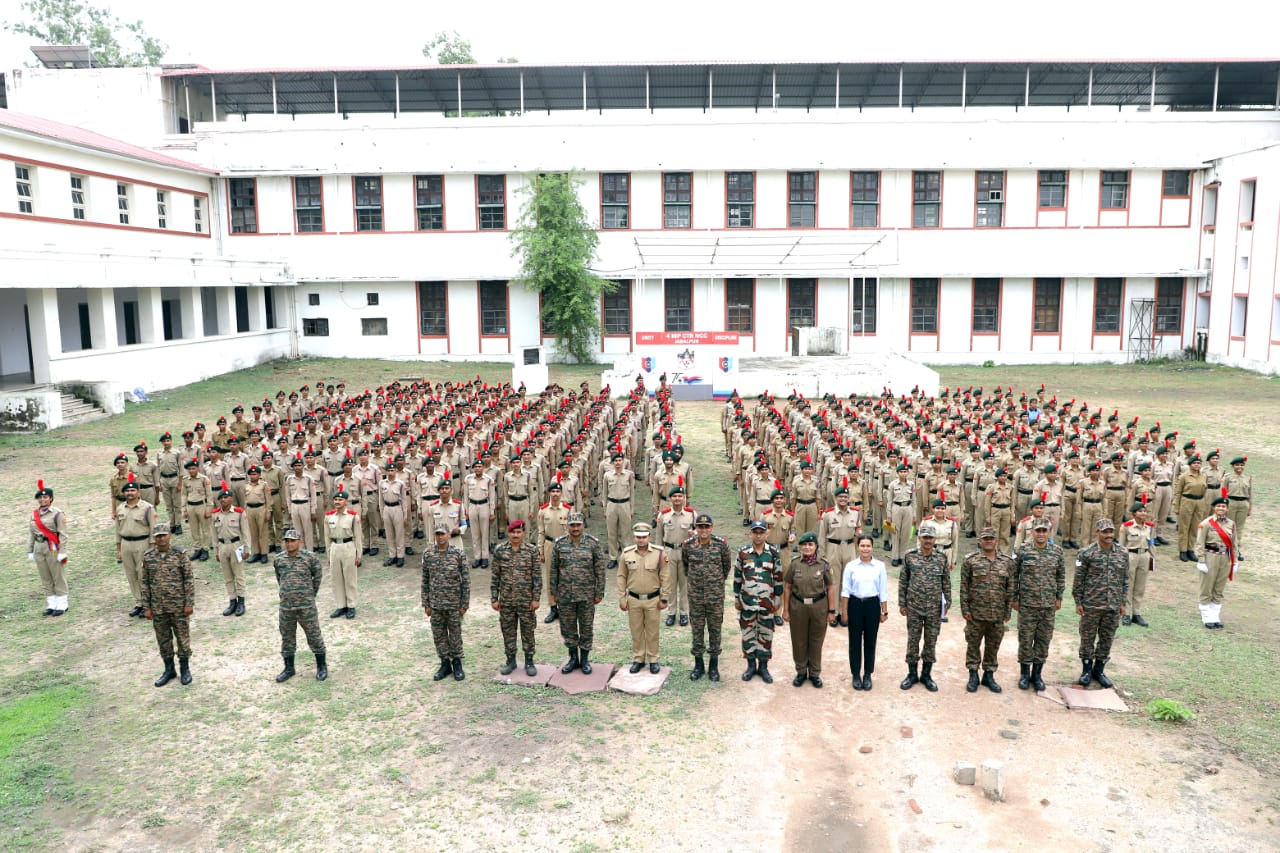 |
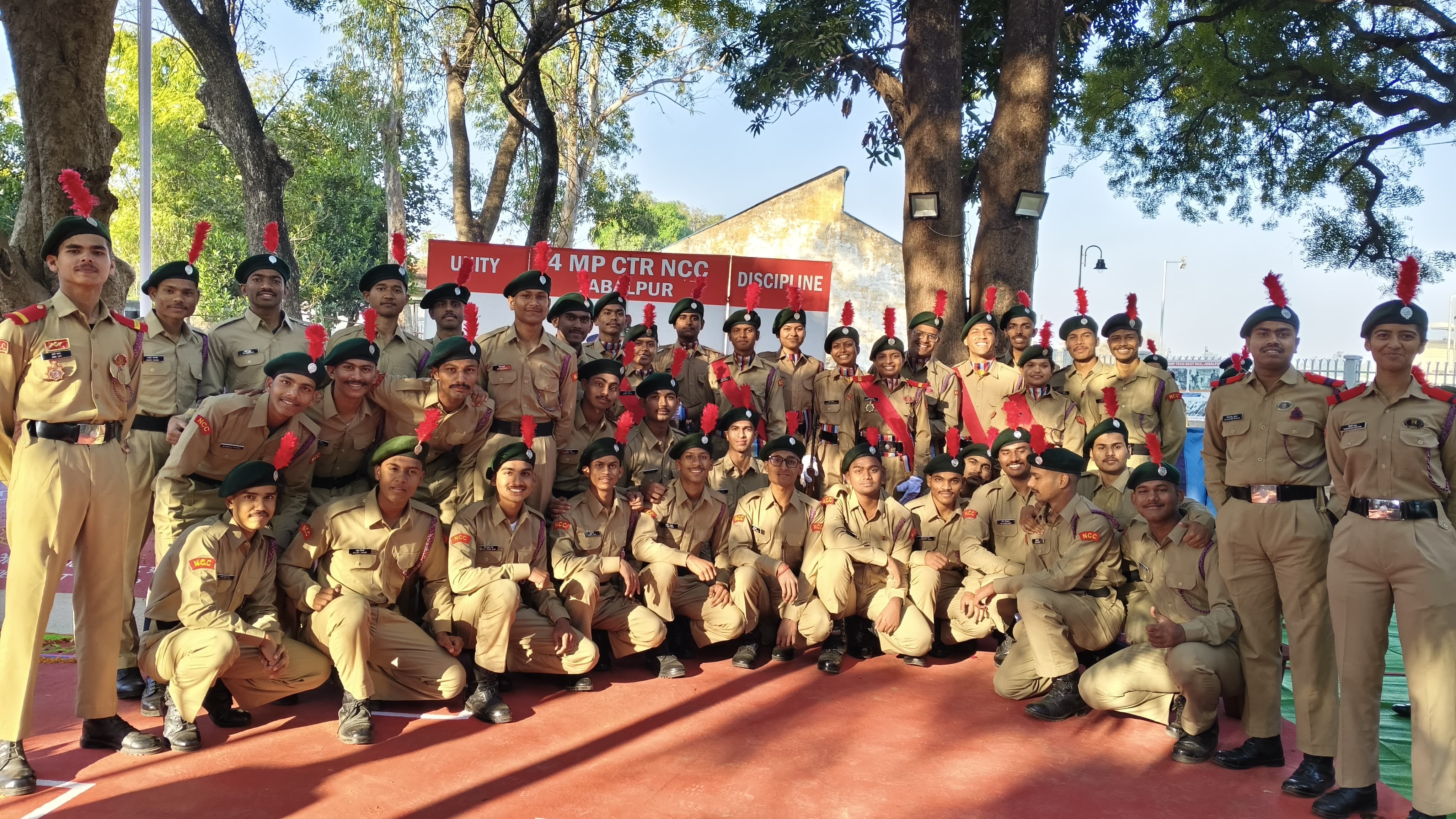 |
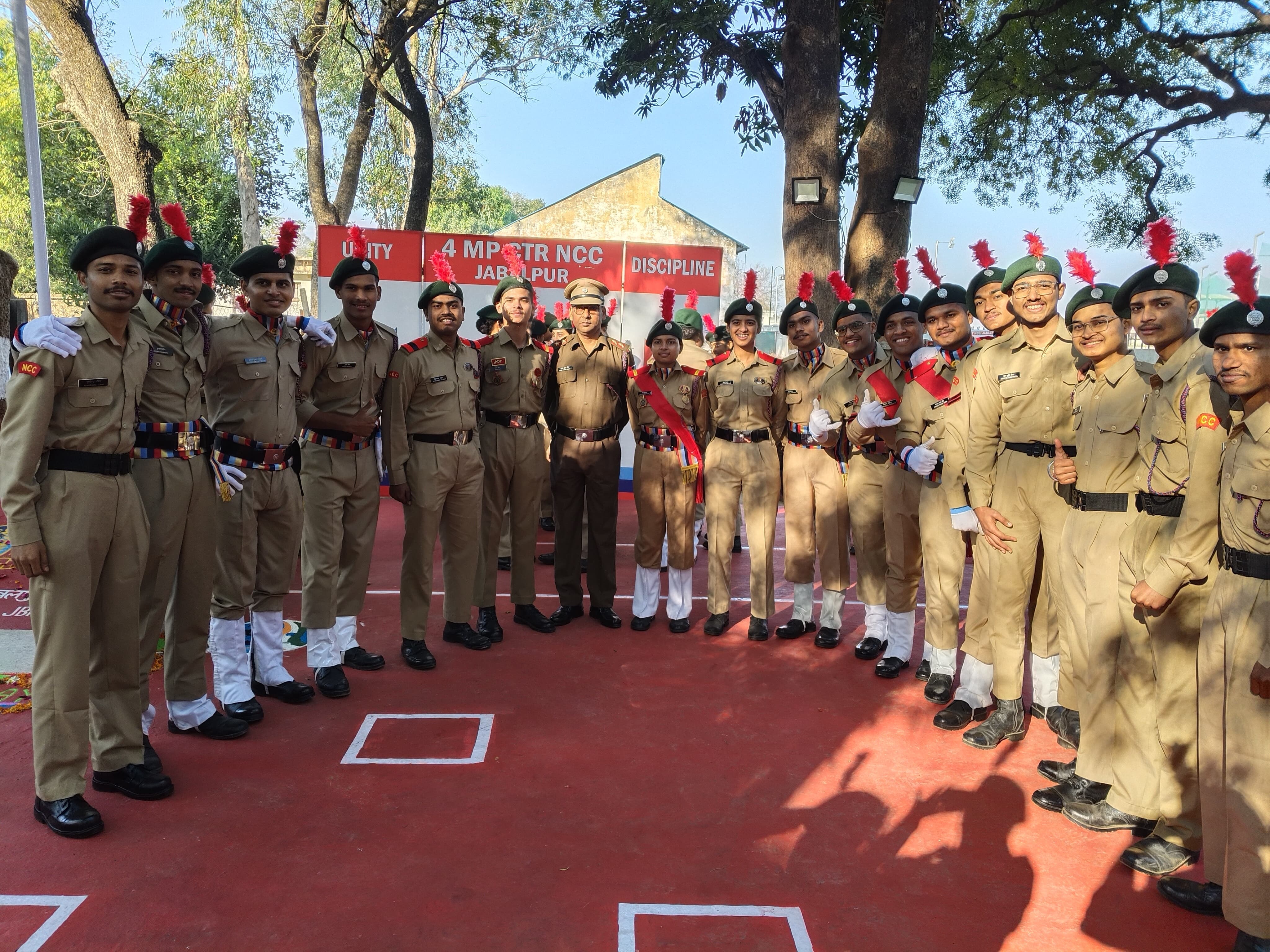 |
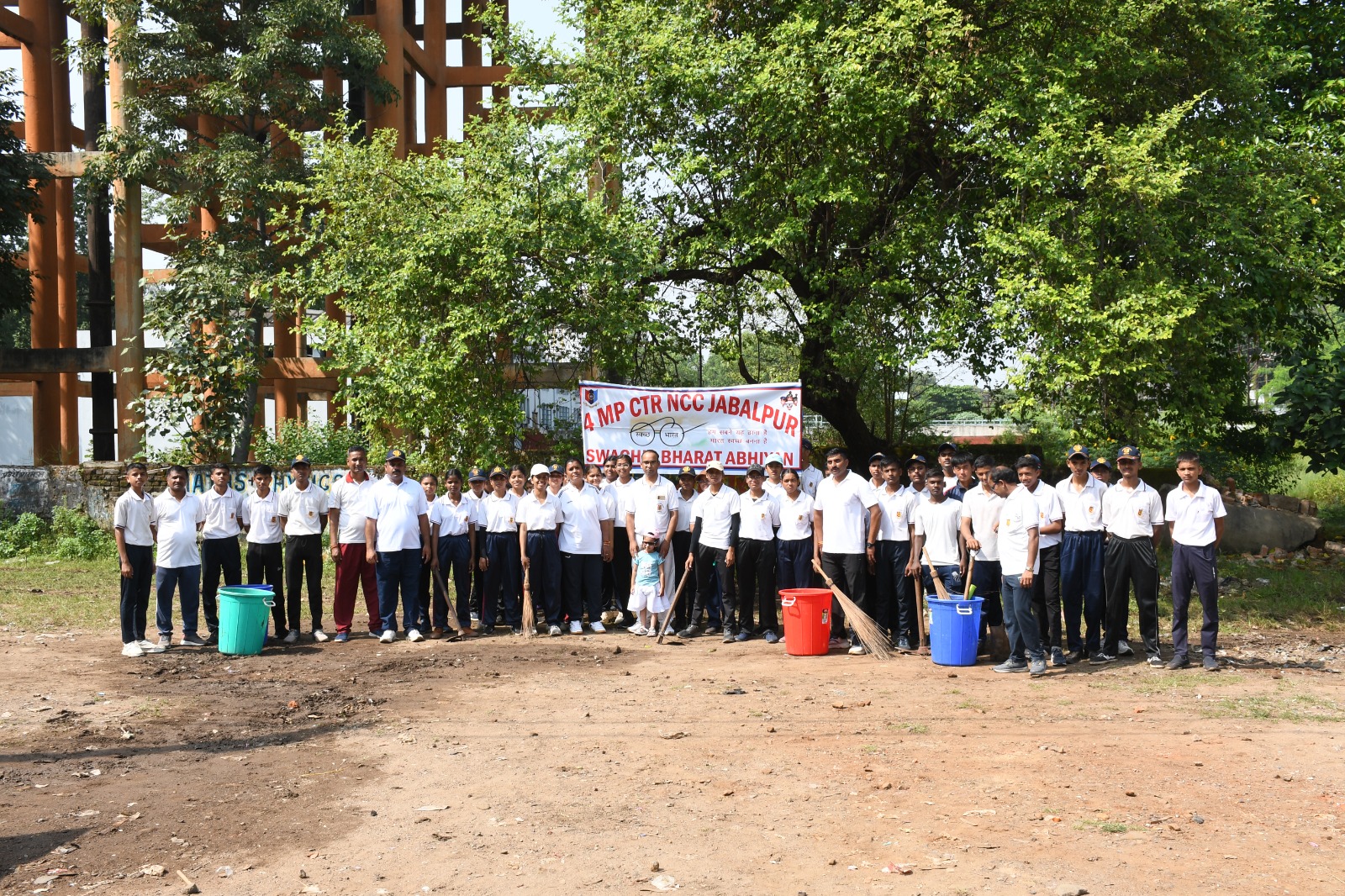 |
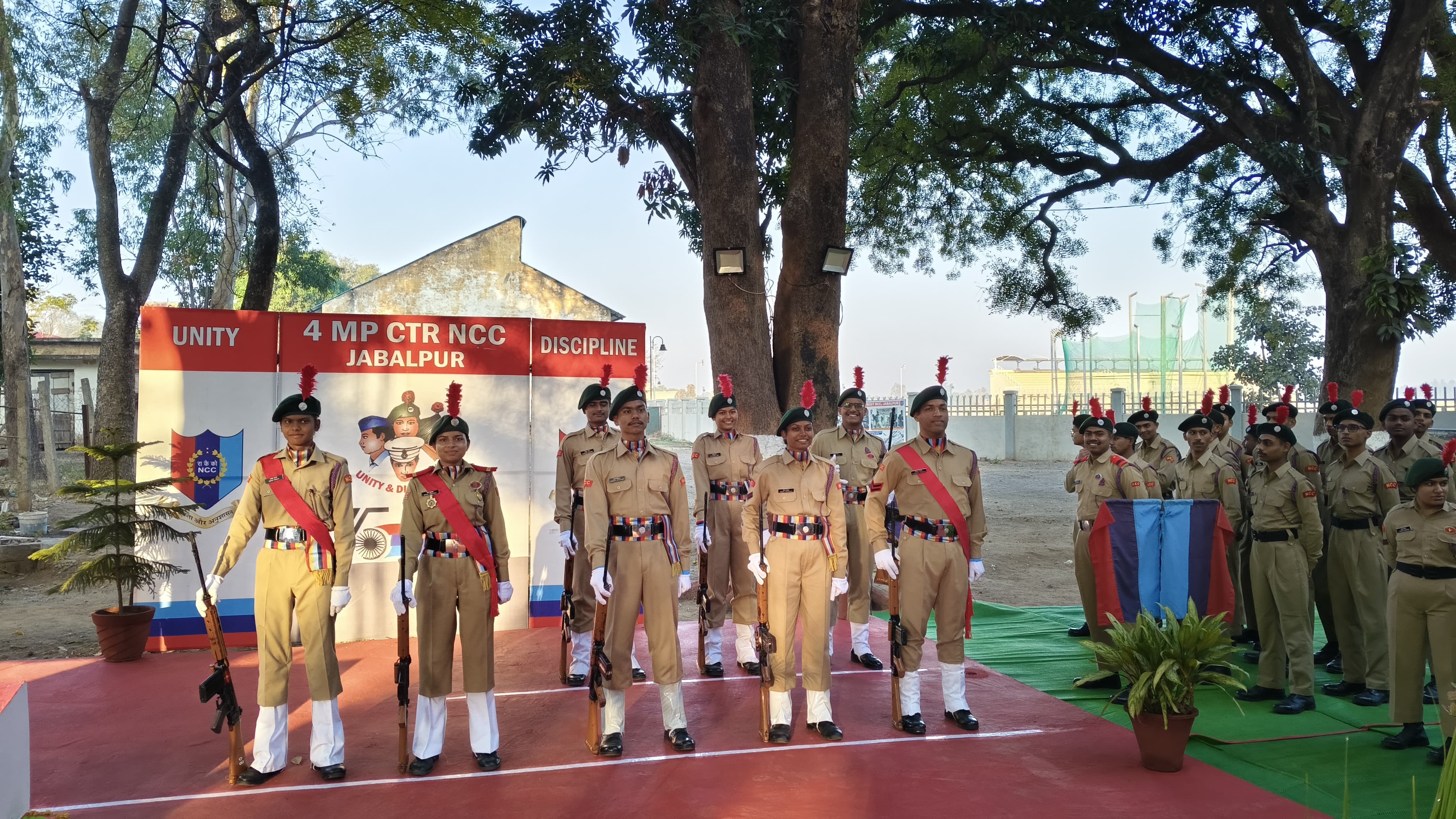 |
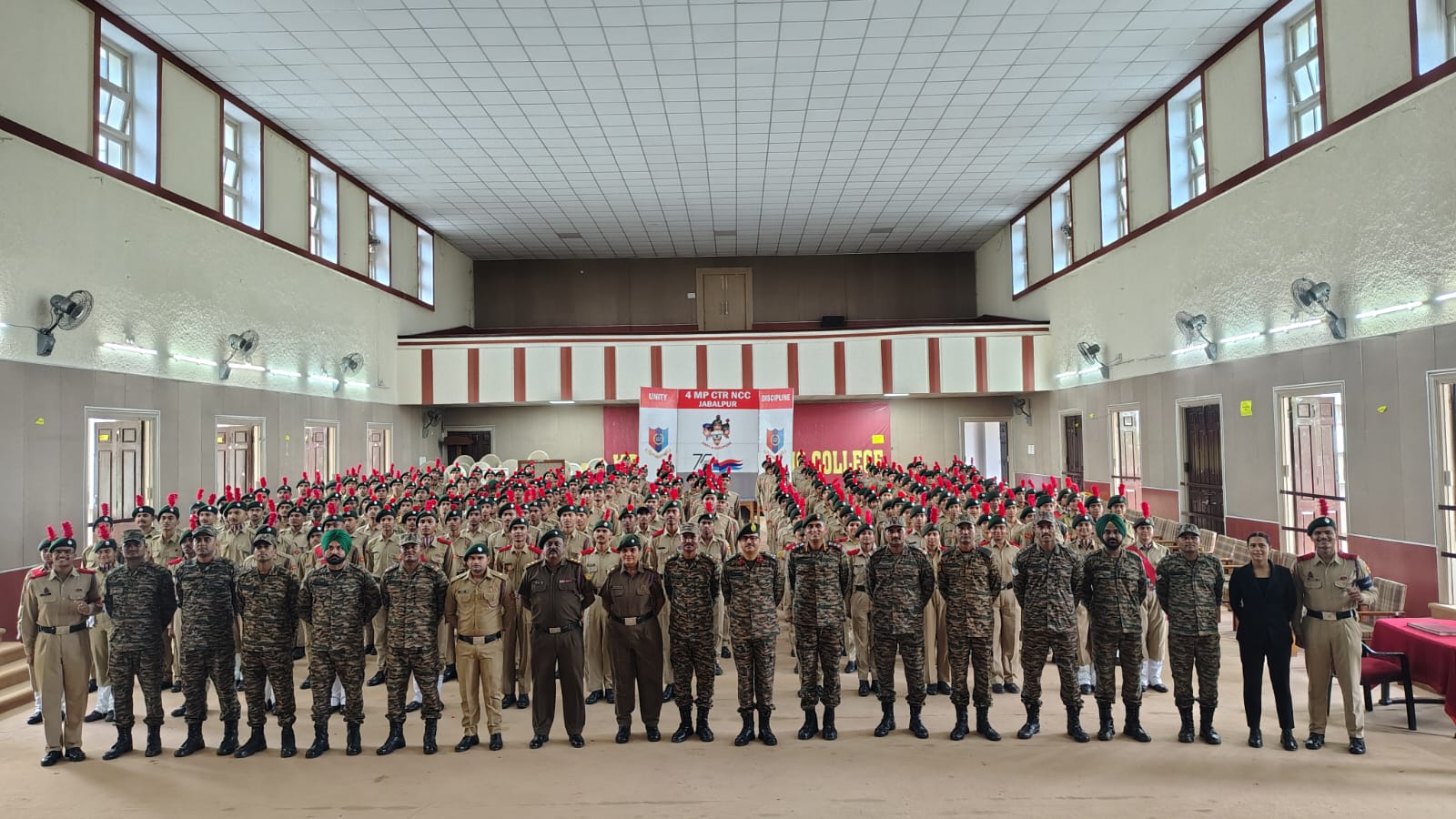 |
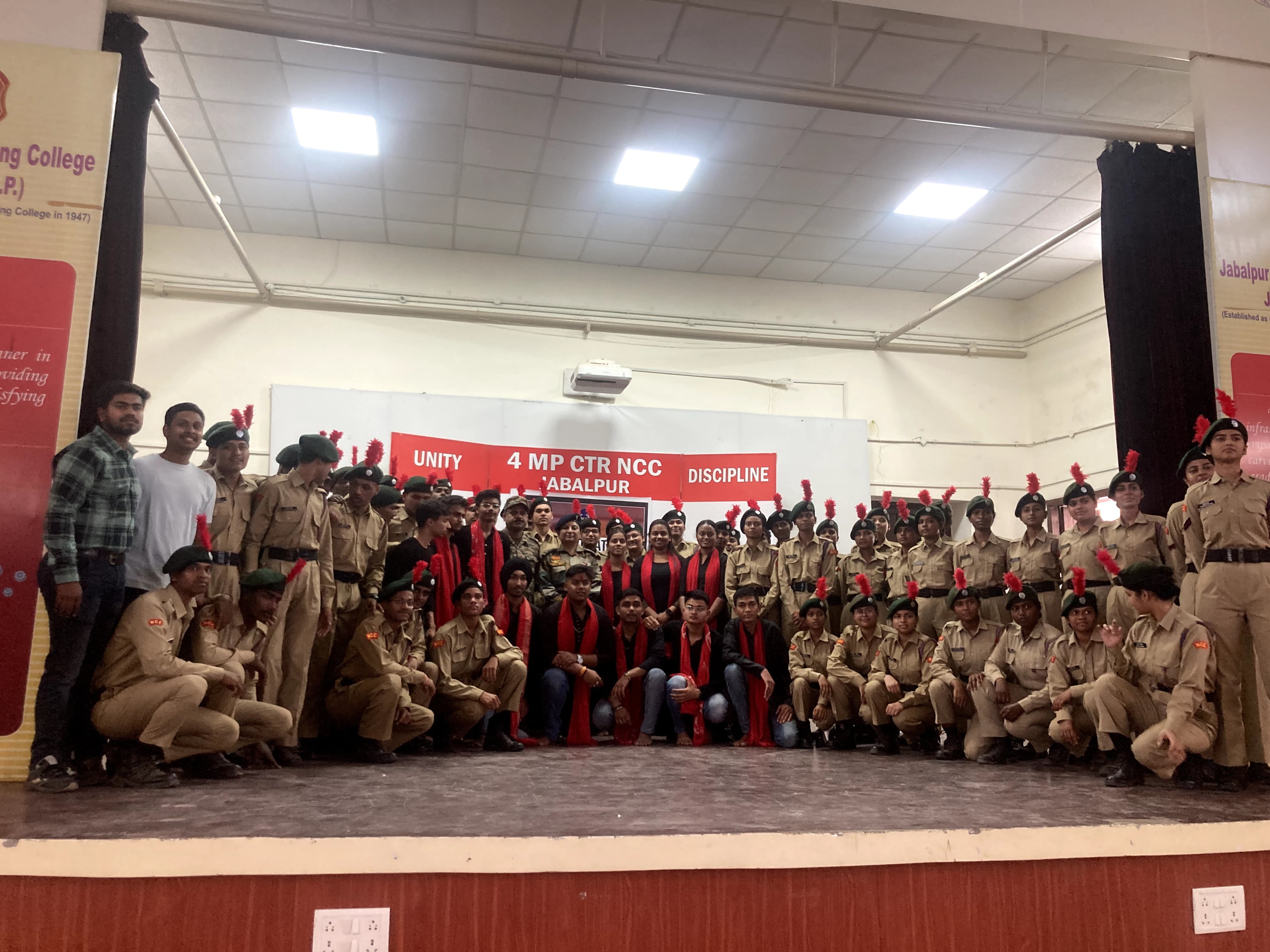 |
 |
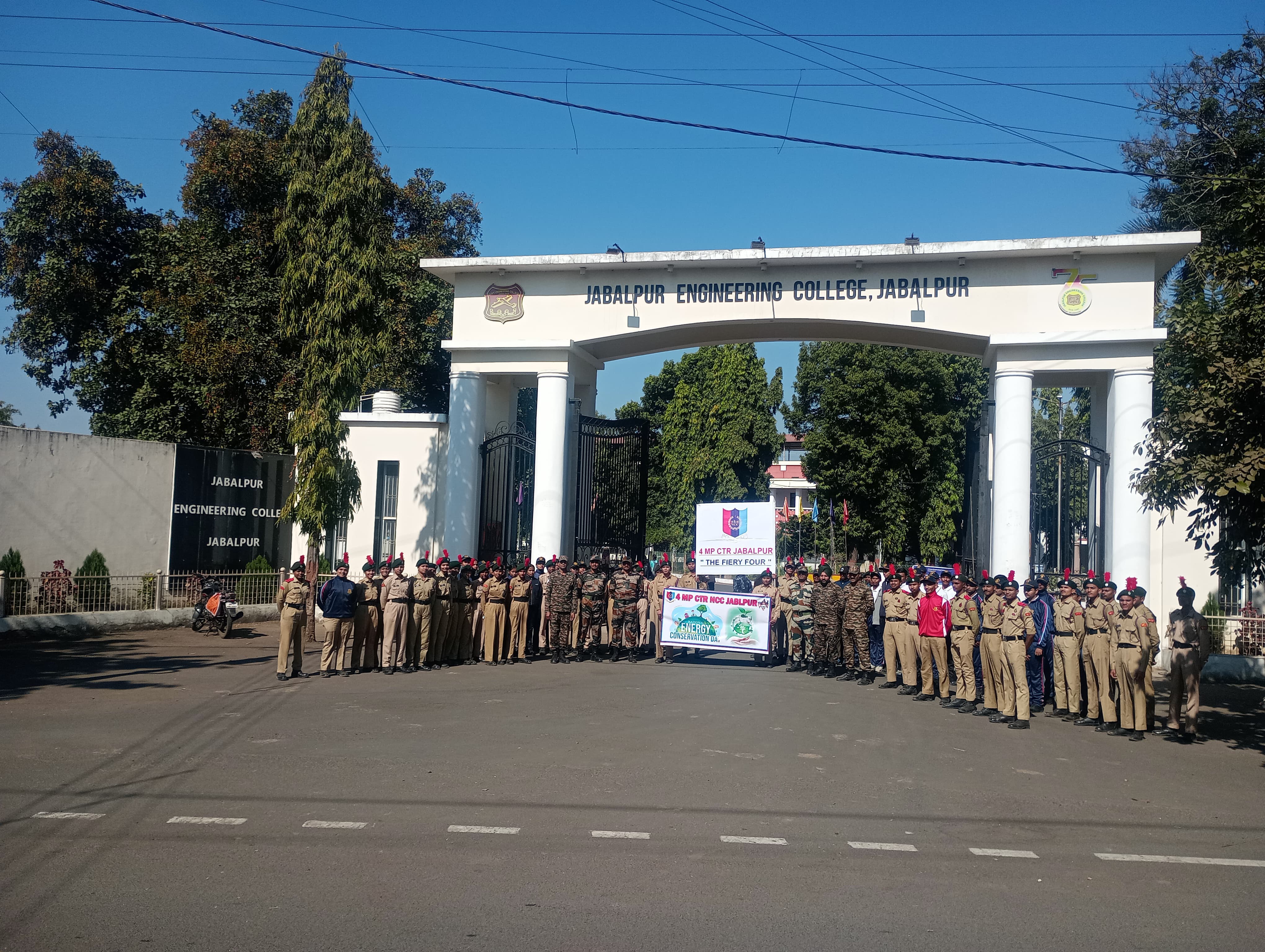 |
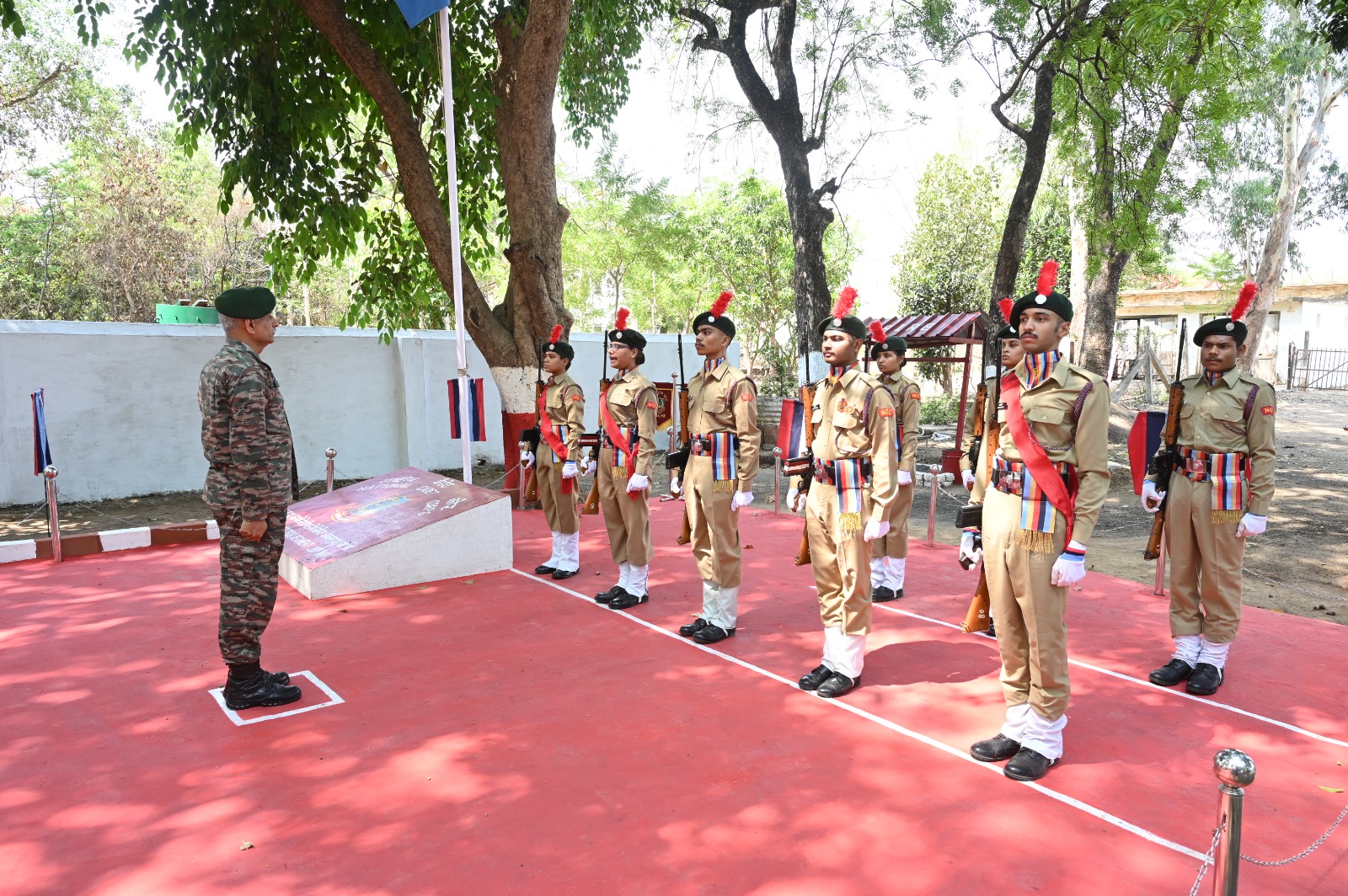 |
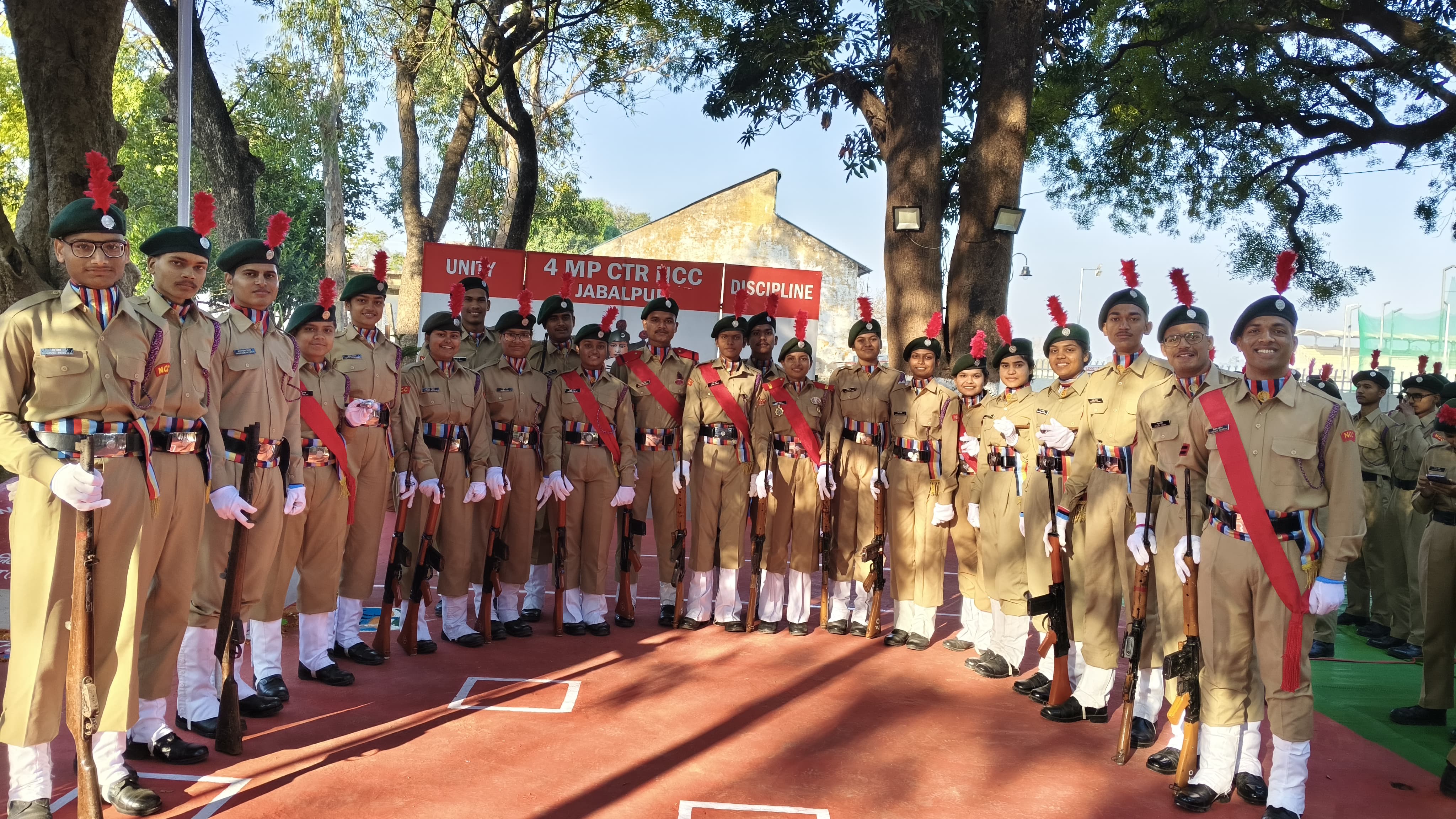 |
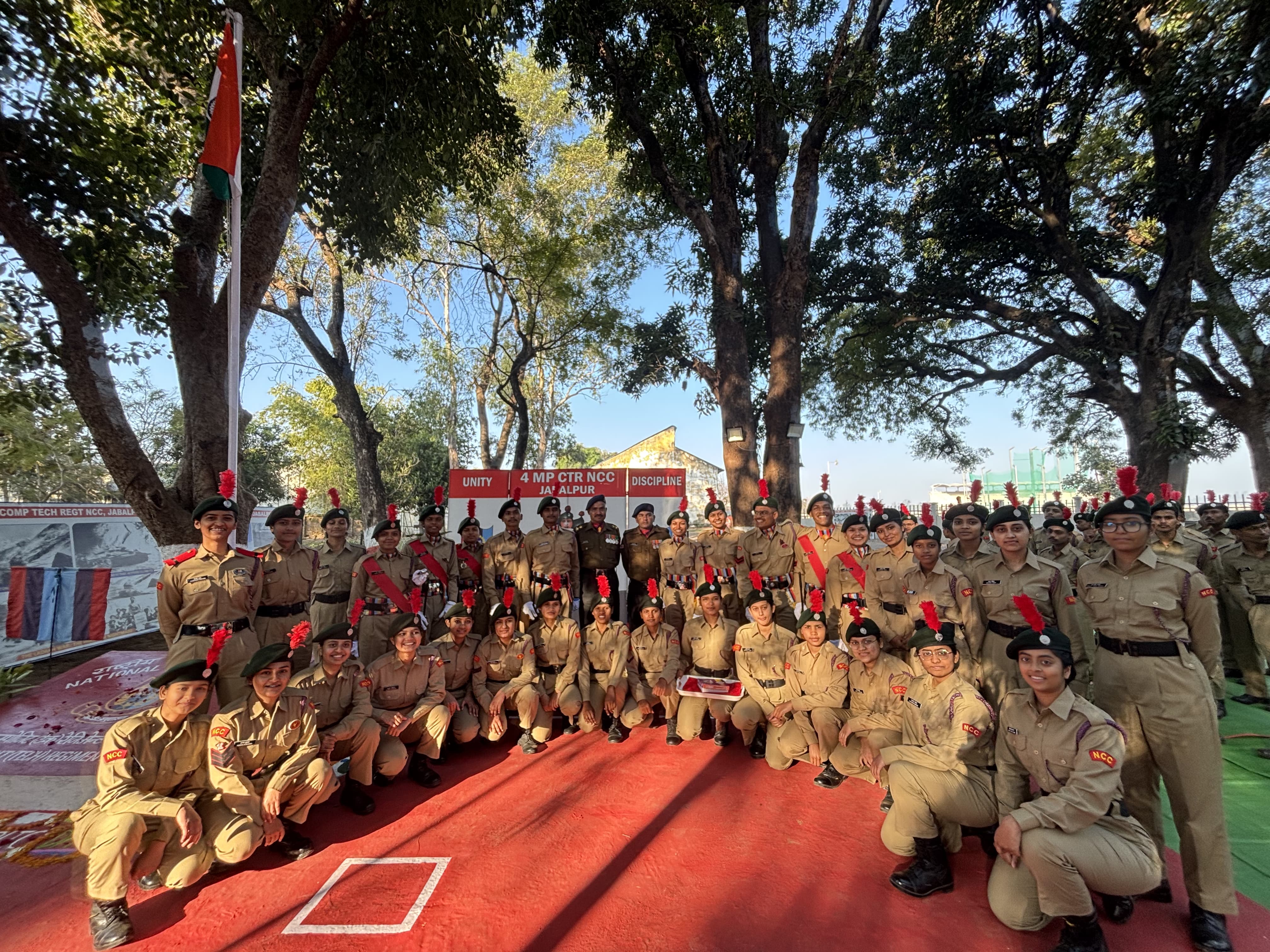 |
Cadet's Handbook
| Sr. No. | Courses Subject | Resources |
| 1. | Common Subjects | SD/SW Common Handbook |
| 2. | Specialized Subjects | SD/SW(Army) Specialized subjects |
Benefits of NCC:
The Benefits of NCC can be broadly classified into two:-
1. Defence Benefits
2. Non-Defence Benefits
1. Defence Benefits:
Those candidates who dream of joining the Indian Armed Forces and hold a ‘C’ Certificate have a golden opportunity to go for an SSB Interview directly. The written exam has been exempted, and candidates are called directly for SSB. More benefits for NCC are:
(a) CDSE (MEN): If a candidate clears his CDSE and subsequent SSB, he will have the following reservations in various academies. A separate merit list is prepared for NCC cadets with a "C" certificate.
(i) IMA- 13-15 Vacancies reserved for ‘C’ Certificate (Army Wing) Holders.
(ii) INA- 05-08 Vacancies reserved for ‘C’ Certificate (Naval Wing) Holders.
(ii) AFA-10-12 Vacancies reserved for “C” Certificate(Air Force Wing) Holders.
(b) Special Entry for (Men & Women):
(i) OTA Chennai- 50 Vacancies for ‘C’ Certificate holders for NCC Spl. Entry (Non-Tech)
(ii) AFA Hyderabad- 10% Vacancies reserved for ‘C’ Certificate Air Wing holders in all courses.
(c) For Jawan: If a candidate wants to join the defence as a Soldier GD/clk/skt/tech/tdn cat, he will be eligible for the award of the following benefits:
(i) ‘A’ cert || 05 marks (GD) || 05 marks (clk/skt/tech) || 05 marks (tdn)
(ii) ‘B’ cert || 10 marks (GD) || 10 marks (clk/skt/tech) || 10 marks (tdn)
(iii) ‘C’ cert: Holders of ‘C’ cert and who have participated in the Republic Day parade will be exempted from CEE for rect sol clk /skt, sol tech, and sol NA cat and will be awarded 100% marks instead of CEE
(d) Paramilitary Forces- 2 to 10 bonus marks awarded for recruitment.
(e) Department of Telecommunication- Bonus marks awarded for recruitment.
(f) CRPF- NCC Cadets holding a third division degree are eligible for recruitment to a gazetted post.
(g) Industry- Some Industries give preference to NCC ‘C’ Certificate holders for various jobs.
(h) State Governments- Preference in State Services in certain States.
(i) National Cadet Corps- Civilian Gliding Instructors/Girl Cadet Instructors and NCC WTLOs.
(j) For ORs, Sailors, Airmen- 5 to 10% bonus marks awarded for recruitment.
2. Non-Defence Benefits:
(a) Scholarships- A scholarship scheme was introduced in 1991, where 250 scholarships of Rs. 2,000/- each were awarded to academically brilliant NCC cadets. The scheme in its present form awards Rs. 5,000/- each, which is distributed amongst the 17 Dtes based on their enrolled strength of cadets.
(b) Best Cadet Awards. Best Cadet Cash Awards are given to two cadets from each category, i.e., JD, JW, SD, SW, in every Group HQ with Rs 3,000/- to each Best Cadet and Rs 2,000/- to each 2nd Best Cadet. A total of 760 cash awards are given every year.
(c) Sports and Adventure Activities- In October 1996, the scope of the Society was expanded to fund such sports and adventure activities which cannot ordinarily be funded by Public Funds. The Society also grants loans for the conduct of sports/adventure activities pending sanction of funds from MOD
A PROUD LEGACY: HISTORY OF NCC
The NCC was founded with a vision to unite and empower India’s youth. It officially took shape in 1948, just a year after independence, under the National Cadet Corps Act. However, its origins trace back even further:
(a) 1917: The University Corps was established to train Indian youth for defense during World War I.
(b) 1948 (July 16): The NCC was officially formed, adopting the motto "Unity and Discipline."
(c) 1950: It expanded into the Army, Navy, and Air Force wings, becoming a tri-service organization.
(d) 1954: The NCC Flag was introduced. The three colors in the flag depict the three Services of the Corps: Army(red), Navy(deep blue), and Air Force (light blue)
(e) 1957 (Dec 23): The NCC Motto was adopted - "UNITY AND DISCIPLINE".
Today, the NCC is the largest youth organization in the world, with over 1.5 million cadets across India. Its headquarters, the Directorate General of NCC (DG NCC), is located in New Delhi, overseeing training and operations nationwide.
AIM:
(a) To develop character, comradeship, discipline, leadership, secular outlook, spirit of adventure, sportsmanship, and ideals of selfless service among the youth of the country.
(b) To create a human resource of organized, trained, and motivated youth, to provide leadership in all walks of life, and always be available for the service of the nation.
(c) To provide a suitable environment to motivate the youth to take up a career in the Armed Forces.
OBJECTIVES:
The objectives of NCC are:
(a) Reach out to the maximum youth through various institutions.
(b) Make NCC an important part of the society.
(c) Teach positive thinking and attitude to the youth.
(d) Become a man source of National Integration by making NCC one of the greatest and strongest united forces of our nation, irrespective of any caste, creed, religion, or region.
(e) Mould the youth of the entire country into united, secular, and disciplined citizens of the nation.
(f) Provide an ideal platform for the youth to showcase their ability in nation-building.
(g) Instill the spirit of secularism and a united India by organizing National Integration Camps all over the country.
(h) Reach out to the youth of friendly foreign countries through the Youth Exchange Programmes.
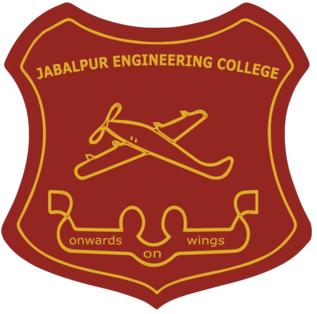
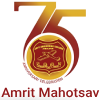
 Android App
Android App
 Facebook
Facebook Twitter
Twitter Youtube
Youtube Instagram
Instagram LinkedIN
LinkedIN